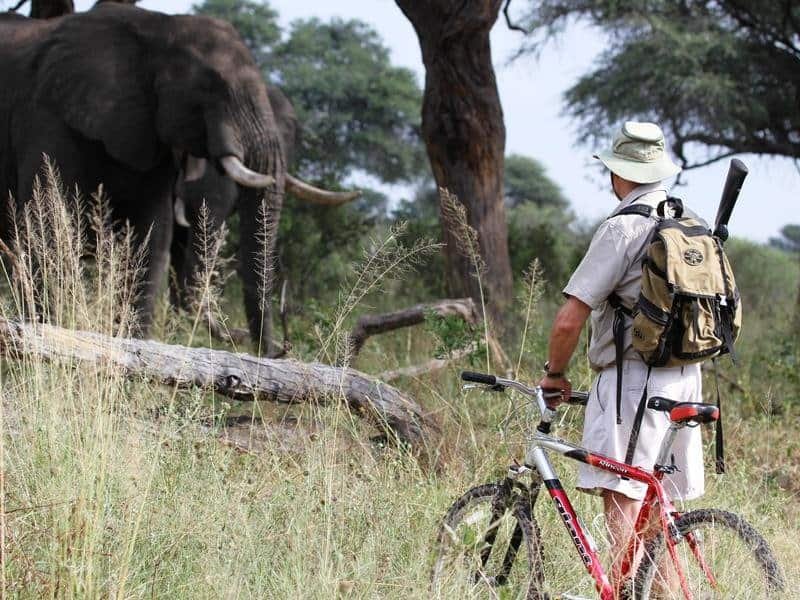
Responsible safari travel is becoming increasingly important as we recognise the impact that tourism can have on the environment and local communities. As travellers, it is our responsibility to ensure that our trips are sustainable, so that we can protect the places we visit for future generations. This is especially important on an African safari, where the natural environment and wildlife are so precious.
This blog post will explore how to travel responsibly on your African safari, by considering the impact of your actions and making conscious choices that benefit the environment and local communities.
Responsible Safari Travel: A Checklist
- Choose a your travel agent wisely – and ask about the safari operators and accommodation they actually work with in Africa
The first step to sustainable travel on your African safari is to choose a responsible safari operator. Look for operators who are committed to responsible tourism, with a focus on minimising their environmental impact and supporting local communities. As you should know by now, The Grown-up Travel Company only works with such operators and organisations.
- Minimise your carbon footprint – and use it well
Travelling to Africa for your safari will inevitably involve a significant carbon footprint, but there are ways to minimise this impact. Consider offsetting your carbon emissions by donating to a carbon offset program, which supports renewable energy or reforestation projects.
You can also choose a safari operator that uses eco-friendly vehicles (or even mountain bikes, as pictured!) and supports other low-impact initaitives. And don’t forget the huge positive benefits that your adventure provides the local wildlife and communities. I believe this more than makes up for the transportation involved.
- Choose eco-friendly accommodation
When choosing your accommodation on your African safari, consider staying in eco-friendly lodges or camps that prioritise sustainability. Such accommodation may use solar power, have water-saving measures in place, or support conservation projects in the local area. They may also provide opportunities for guests to learn about conservation efforts and get involved in local initiatives.
- Respect wildlife and their habitat
One of the most important ways to travel responsibly on your African safari is to respect wildlife and their habitat. This means following the rules of the park or reserve, staying a safe distance from wildlife, and avoiding behaviour that could disturb or harm animals. It is also important to support conservation efforts by choosing tours and activities that benefit wildlife, such as visiting a rehabilitation center or supporting anti-poaching initiatives.
- Include walking safaris as part of your adventure
There are many advantages of including a walking safari in your activities. As well as some physical activity which may help to make up for the amazing food and drink at the camp, being on the ground is a totally different experience. And instead of relying solely on vehicle-based game drives, you can significantly reduce your carbon footprint. Vehicles used for game drives often run on diesel – walking safaris, on the other hand, have a minimal carbon footprint and do not produce harmful emissions.
- Support local communities
When you visit a new place, it is important to support local communities by choosing locally owned businesses and buying locally made products. This helps to ensure that the economic benefits of tourism stay within the local area, and can help to support sustainable development. You can also consider supporting community-based tourism initiatives, which allow you to learn about local culture and traditions while supporting the local economy.
- Reduce waste
Reducing waste is an important part of sustainable travel, and can be particularly challenging on a safari. However, there are ways to minimise your waste, such as bringing a reusable water bottle and refilling it instead of buying single-use plastic bottles. You can also choose accommodations that have recycling programs in place, and avoid leaving litter or food waste in the park or reserve. Note that a large number of safari camps offer guests reusable water bottles – ask me for the latest information.
- Learn about the local culture and environment
Finally, one of the best ways to travel responsibly on your African safari is to learn about the local culture and environment. This helps you to understand the challenges facing the area, and can inspire you to get involved in conservation and community initiatives. You can also learn about sustainable travel practices and share them with others, so that we can all work together to protect our planet.
In conclusion, travelling responsibly on your African safari is about making conscious choices that benefit the environment and local communities. By choosing responsible operators, minimising your carbon footprint while understanding the benefits your trip will have on the ground, respecting wildlife and their habitat, supporting local communities, reducing waste, and learning about the local culture and environment, you can make a positive impact on the places you visit.
